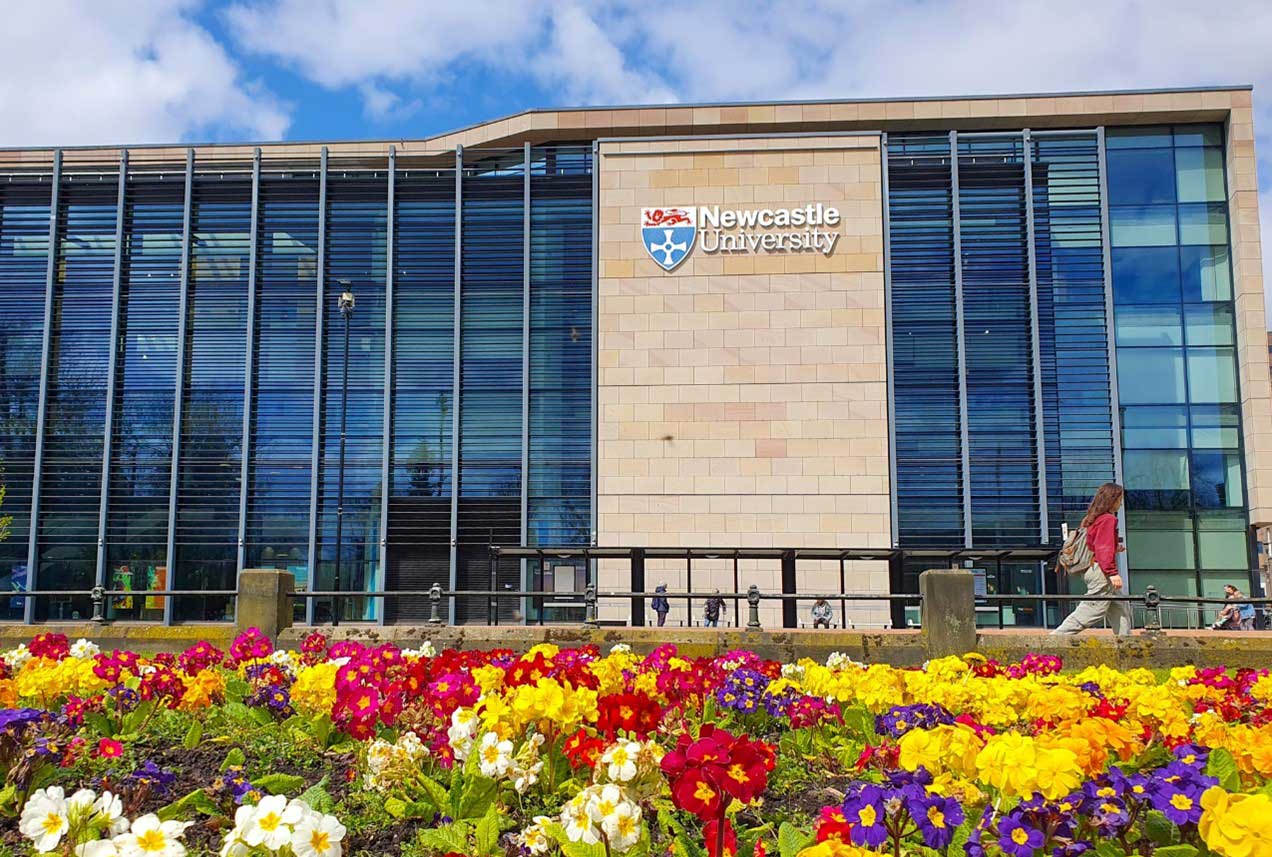Ruth & Lionel Jacobson Charitable Trust
PhD graduate shares insights into his journey from Newcastle University to his current ground-breaking research into Osteoarthritis Genetics with the support of the Ruth & Lionel Jacobson Charitable Trust.
We caught up with Jack (MRes Medical Genetics, 2019) to find out more about his experience of studying at Newcastle University, and the inspiration behind his research into identifying the genes which present an osteoarthritis risk.
His PhD was entirely funded by the Ruth & Lionel Jacobson Charitable Trust who had also previously generously awarded his supervisors’ research group £75,000 to assist their research. This allowed the team to purchase a Pyrosequencer, which consequently enabled them to investigate on a molecular level osteoarthritis risk genes and to collect data.
Congratulations on your research, Jack! Could you elaborate on your PhD work and its significance?
My PhD project utilises osteoarthritis patient samples from total joint replacement to identify links between changes in DNA sequences (that can predispose an individual to develop osteoarthritis), and an epigenetic marker known as DNA methylation. This marker changes the way the cells package and process DNA, which can alter their behaviour and health. Then, using various cell lines, we have been able to demonstrate the mechanisms behind this effect: that these correlations we observe in the patient samples can drive increased levels of a gene called WWP2 in cartilage tissue. To do this, we have utilised state-of-the-art molecular genetic techniques including the CRISPR/Cas9 toolbox which allows precision editing of DNA: like a pair of molecular scissors! This is where our pyrosequencer has been invaluable: it allows us both to take measurements of DNA methylation in the patient samples, and to confirm that our molecular scissors are working in the way we would expect.
That’s so interesting, what motivated you to pursue a PhD in Osteoarthritis Genetics?
I decided to pursue a PhD in osteoarthritis genetics because of the exposure I gained during my previous role as a research technician. Osteoarthritis affects over 10 million people in the UK, resulting in joint pain and reduced mobility that can impact upon quality of life. Whilst joint replacement surgery is an effective treatment, it is invasive and carries the risk of complications. There are currently no disease-modifying osteoarthritis drugs available. We also know that genetics are a huge risk factor for the disease, and there are many different genes that can contribute to this risk. Therefore, this is an interesting topic to study with important implications for understanding the molecular changes underlying this disease.
What impact do you hope your research will have on Osteoarthritis genetics?
Now that we have experimentally validated that this osteoarthritis genetic risk variant drives increased expression of WWP2, future studies may attempt to clinically exploit these findings. WWP2 can interact with other cellular proteins that could result in cartilage degradation, which is a hallmark of osteoarthritis. Therefore, the ability to target this gene will potentially provide an avenue for therapeutic intervention, which could prevent the tissues in the joint breaking down over time, or allow the tissue to regenerate.
How has support from the Jacobson Trust influenced your journey?
Without the support of the Ruth & Lionel Jacobson Charitable Trust, I would not have been able to pursue a PhD in this important subject area that aligns with my academic goals. Furthermore, their funding has facilitated my attendance at several major conferences in the UK and internationally, allowing me to present my research findings to a wider audience and build connections with other osteoarthritis researchers globally. Finally, and most importantly, by supporting our group’s research in this area, we have been able to publish the findings of my PhD project in a peer-reviewed journal, contributing to the field of osteoarthritis genetics.
Thank you for explaining that! Now let's talk about your student days at Newcastle, is there a standout moment that you remember?
I enjoyed the research project component and the friends I made in the research group I was within at the time. Finishing the research project and delivering an oral presentation to the wider research group I studied my MRes within was a highlight and felt like an accomplishment.
Looking back what advice would you give to recent Newcastle graduates?
Take your time to work out exactly what you want to do and maintain a work-life balance. I think planning is very important, especially for lab work, to save time and work more efficiently. Make the most of any opportunities that can build your CV (I helped organise the North East Postgraduate (NEPG) conference in 2022 and found it an important skill outside of the lab).
